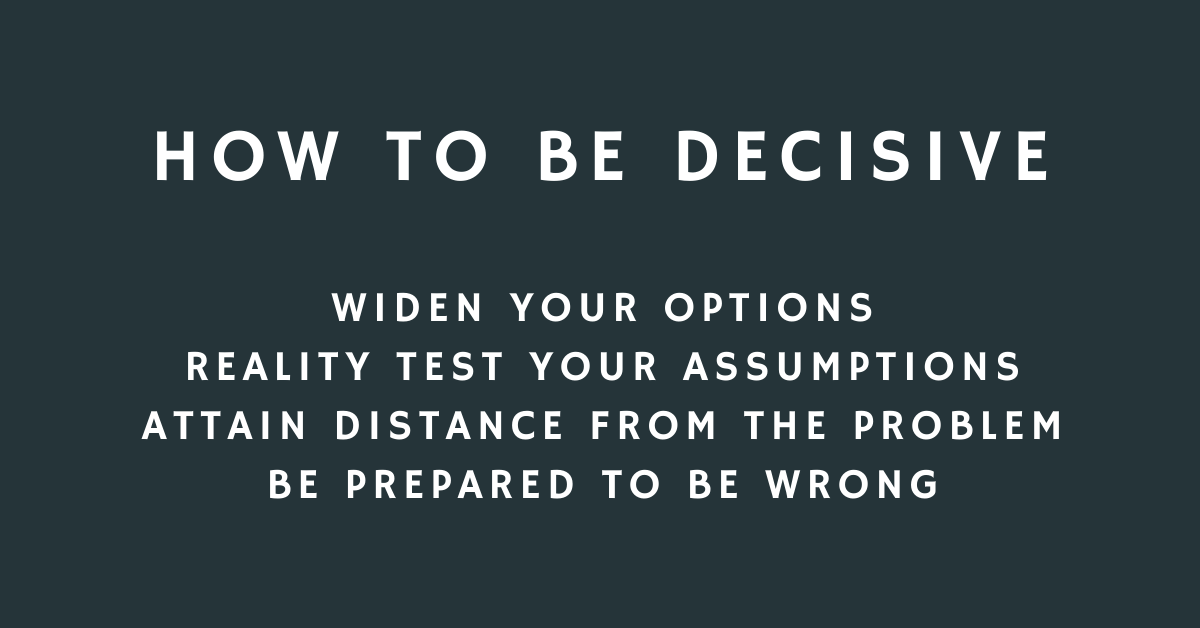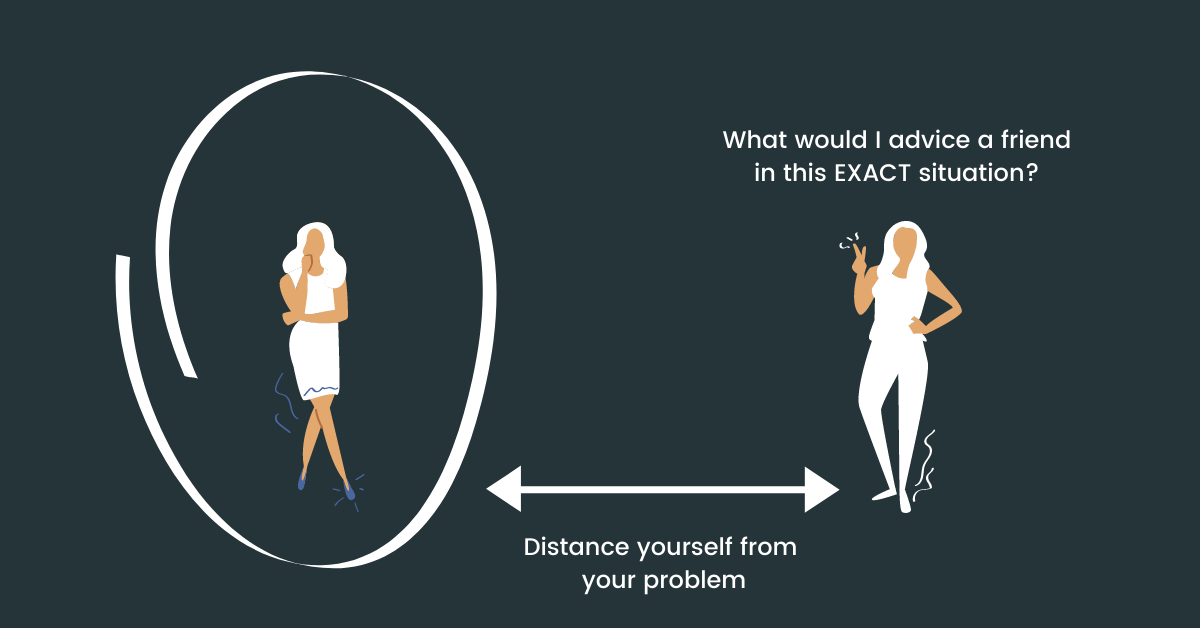How to be decisive
The prudent see danger and take refuge, but the simple keep going and pay the penalty.
- Proverbs 22:3
TLDR: You can be decisive and confident in your decisions when you’ve widened your options, reality tested your assumptions, attained distance from the problem and are prepared to be wrong.
Reasons why we are indecisive
Ever wondered why sometimes we can be indecisive or second guessing our decisions?
Here are a few reasons why:
1) We made decisions too early, without having all the necessary information.
2) We made decisions without considering all possible options. Lazy decision making happens when we take the first sensible option that comes our way.
3) We made decisions because of FOMO or the fear of rejection. Desperate situation makes you do desperate things.
4) We made decisions based on wrong assumptions.
How to be more decisive and confident in our decisions
I learned through reading the book Decisive and running HeyOrca that we can be more confident in our decision making when we:
1) Widen our options. We don’t make the best possible decision when we choose the first option that makes sense to us. Instead, we should be patient and ask what other options are available to us:
“What are all possible solutions to solve this problem?
“Are the options mutually exclusive or can we do both?”
“If we say yes to this option, what are we saying no to?”
“What better ways can we spend this resource?”
2) Reality test our assumptions. We often make decisions based on wrong assumptions and end up regretting them because this could have been prevented if we had asked ourselves a few questions earlier:
“What assumptions are we making?”
“Are the assumptions true? What evidence suggests that?”
“What are ways in which we can we test our assumptions?”
3) Attain distance from the problem. Being too emotionally involved in a situation can often cloud our judgement. Try to distance yourself from the problem by asking:
“If I were to advice my friend on this exact problem, what would I suggest?”
“If another person were to replace me in my position, what would he/she do?“
“Who has successfully dealt with this before? What would he or she say"”
4) Be prepared to be wrong. We often make poor decisions when we let the fear of being wrong or missing out guide our decision. We should always assume that there is a possibility that we could be wrong by asking ourselves:
“In what ways could I be wrong about my assumptions/ conclusion?”
“If in 3 months I discovered that this was the wrong decision, what could the possible reasons be?”
“How do we know when we are wrong? What will be our plan b?”
Be mindful that we can only make a number of high quality decisions in a day, so not all decisions need to go through this rigorous process.
When faced with a decision, consider if it is a “High Risk, High Impact” decision or a “Low Risk, Low Impact” decision.
Try to reserve your energy for “High Risk, High Impact” decisions.
High Impact, High Risk Decisions = Decisions where if you get it wrong, then it’s hard and costly to reverse. i.e. “Who should I hire?”
Low Impact, Low Risk Decisions = Decisions where if you get it wrong, then it’s easy and cheap to reverse i.e. “Should we go to the arcade or bowling for our team outing?”
The key to being more decisive hinges on how we make our decision.
Remember not to make a decision too early, widen your options, reality test your assumptions, attain distance and be prepared to be wrong.
Hope this helps! Talk soon 👋


